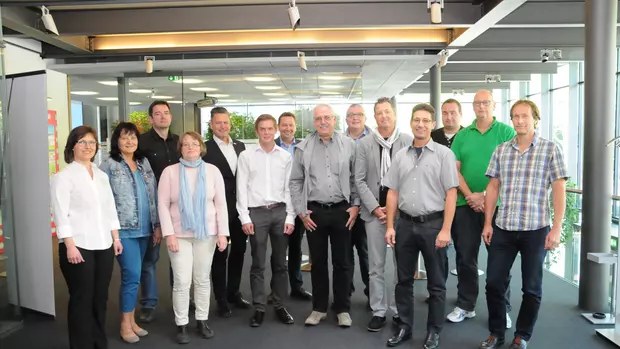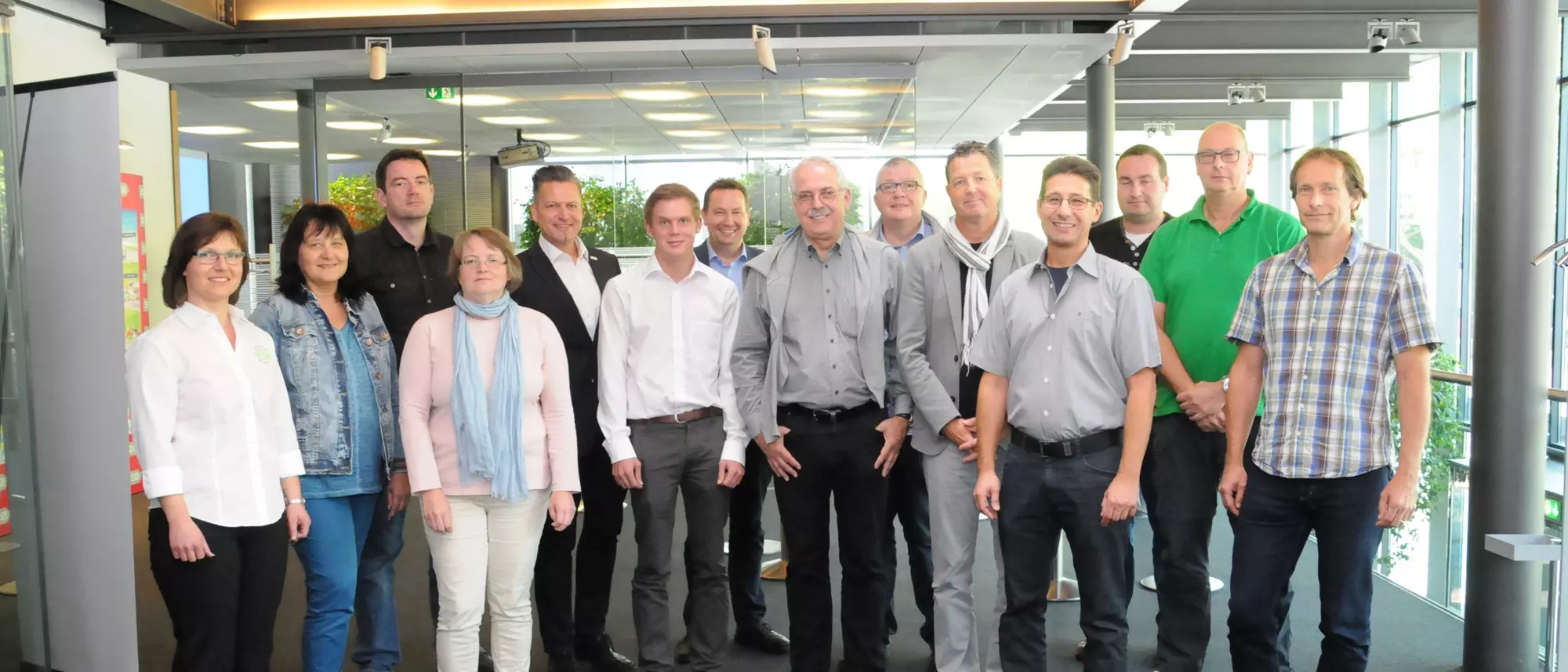
Current energy standards, the funding landscape in Germany and the topic of municipal energy management - all this was on the agenda at the 19th Municipal Environmental Meeting organised by Stadtwerke Gießen. The participants received many new ideas for their daily work.
Anyone who wants to construct a building today has to familiarise themselves with the applicable energy standards. Gisela Renner, an innovative energy consultant from Cologne, explained the upcoming changes and what current regulations mean for the refurbishment of existing buildings and for new buildings in municipalities at the Municipal Environmental Meeting on 24 November. During her presentation at the headquarters of Stadtwerke Gießen (SWG), she also discussed funding opportunities and outlined strategies that cities and municipalities can use to fulfil future energy efficiency requirements at an early stage.
As every year, SWG invited environmental consultants, energy officers and employees from the building departments of neighbouring municipalities to bring them up to date and support them in their work. "We are delighted with the lively interest in our event and are sure that the participants will once again be able to take away a lot of information," explained Michael Rösner, Head of Sales for Private and Commercial Customers at SWG, emphasising: "With the Municipal Environmental Get-Together, we are pursuing the goal of promoting dialogue and strengthening energy expertise in cities and municipalities."
Higher standards in terms of energy efficiency
The 19th Municipal Environmental Meeting was entitled "EnEV 2014/2018 and the current funding landscape". Background: Stricter energy standards are to come into force for new public buildings in future - prescribed by the EU Buildings Directive. New private buildings will follow in a second stage by 2021.
The German government wants to implement the EU Buildings Directive with the Building Energy Act GEG 2018 - and thus merge the Energy Saving Act (EnEG), the Energy Saving Ordinance (EnEV) and the Renewable Energies Heat Act (EEWärmeG).
The 15 visitors to the Municipal Environmental Get-Together were given a concise overview of the consequences of this for cities and municipalities. In the first part of her presentation, speaker Gisela Renner provided information on the current status and the development of the GEG to date. She also explained important connections between existing and planned regulations. She also emphasised the relevance of the topic: "Local authorities already have to deal with the new directives. Although there are no corresponding legal requirements at national level yet, the EU directive will apply from 1 January 2018."
In the second part of her presentation, Gisela Renner focussed on practical help. She showed strategies specifically for local authorities and presented the attendees with solutions with which they can recognise and fulfil the necessary requirements for construction and renovation projects.
Martin Zielke, responsible for energy management at SWG, also presented the municipal energy management system that is used in Giessen and elsewhere. With success, as Martin Zielke reported: "The city has been able to reduce its electricity, heat and water consumption in its municipal properties. Municipal energy management is therefore to be extended to other buildings."

